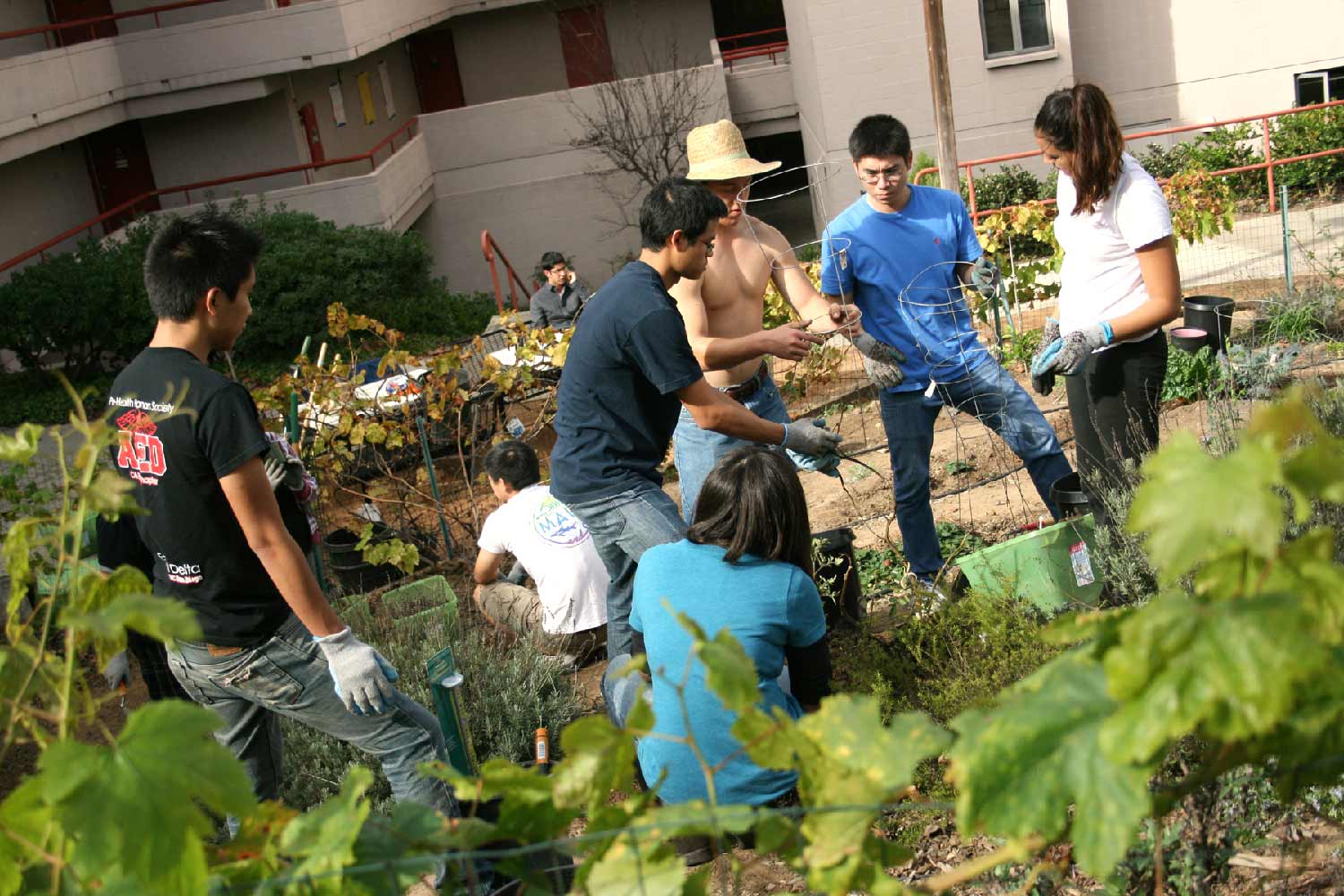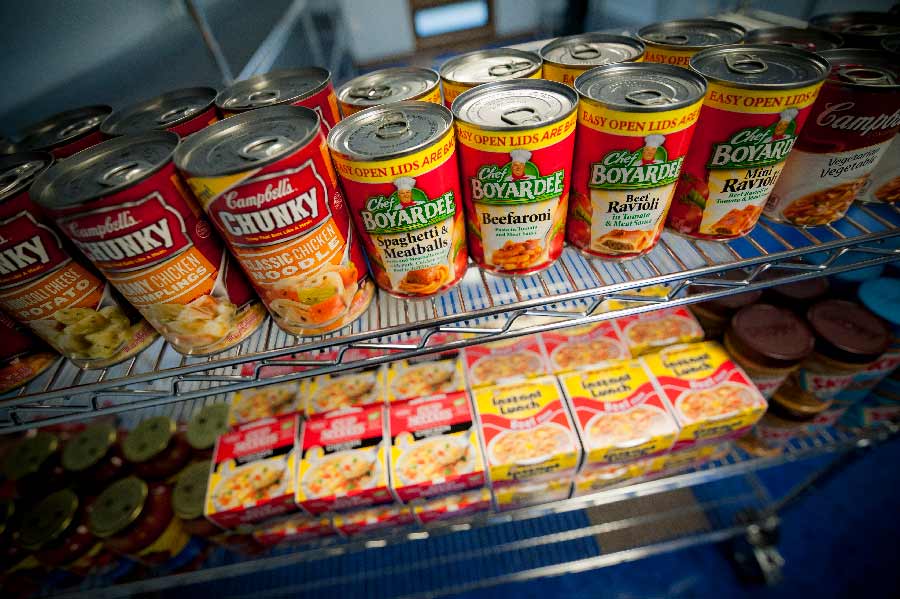By:
- Christine Clark
Published Date
By:
- Christine Clark
Share This:

Photo by Erika Johnson/University Communications
Sustainably Feeding the Hungry
An estimated 70 billion pounds of food is wasted in the U.S. each year, yet recent statistics show that 42.2 million Americans live in food insecure households, including 13.1 million children. So how do we get nutritious food that would go into the trash to individuals and families who need it most? The answer is food sustainability, which was the center of one of the dynamic Earth Month events held on campus April 18.
Other UC San Diego Earth Month events, which were themed “Using Science to Protect the Planet,” included a sustainability showcase, trash sort, green job fair, the San Diego March for Science, Arbor Day tree planning, lectures and much more.
The “Let’s Talk about Food Sustainability” event brought together community and campus groups to talk about local food insecurity in San Diego and ways the public can get involved and improve food sustainability in the region. The discussion featured speakers from Feeding San Diego, the Jewish Family Services and the Triton Food Pantry. The event, organized by UCSD CARES, helped educate attendees on issues of food waste and food insecurity and how they can get involved to be a part of the solution.
Rachel Oporto, of Feeding San Diego, discussed how the nonprofit organization works to distribute healthy food with dignity to San Diego residents struggling with hunger. “We have too much excess food and we are still seeing food insecurity. How do we bridge that gap? We partner with local grocery stores,” she said.
“Food rescuing” plays an integral part of this process. Food rescuing is recovering food that is edible, but often not saleable. These goods can include products that are at or past their “sell by” dates or are imperfect in any way—a bruised apple or day-old bread—are donated by grocery stores, food vendors, restaurants and farmers markets.
Oporto said these partners schedule weekly or bi-weekly food rescues, which help distribute food to the one in eight San Diegans who face hunger. Feeding San Diego alone serves 63,000 children, families and seniors each week.
Brendan Rosen of Jewish Family Services said that one way his organization tries to solve food insecurity in the region is through its Corner Market, a market-style pantry offering free fresh produce, bread, dairy, meat, healthy non-perishable items and pet supplies to those in need. Much of the food provided to the market comes from vendors such as Sprouts, Starbucks, Ralphs and others.
“We try the best we can to make it look like a real mini grocery store and we find it to be a dignified way to get food,” he said. “And people’s dietary needs are different, so this process is designed to help with that.”

Erik Jepsen/UC San Diego Publications
Concluding the event was a presentation from Stephany Gonzalez of UC San Diego’s Triton Food Pantry. Established in 2015, the pantry provides service to UC San Diego students in need of food, helping ensure that every student has enough energy to get through the day and that no student needs to skip a meal for any reason. The goal of the pantry is to build a network of resources and awareness about food insecurity.
“We are working to remove the stigma associated with food insecurity on college campuses,” Gonzalez said. “College is an important time for students to get adequate, nutritious food because for a lot of them, it’s the first time in their lives when they are preparing meals for themselves. They also have busy schedules which may interrupt their eating patterns.”
She added that the pantry is also designed to help students get nutrient dense food, regardless of their budget.
“We don’t want students to rely on inexpensive caloric-dense food for their diet,” she said.
The establishment of the Triton Food Pantry aligns with the UC Global Food Initiative (#globalfood), a system-wide program designed to harness the University of California’s collective excellence in research, outreach and operations in an effort to put the world on a path to sustainably and nutritiously feed itself. The pantry is stocked with supplies from the San Diego Food Bank, community partners such as the Garden of Eden Community Supported Agriculture as well as donations from students.
The April 18 “Let’s Talk about Food Sustainability” event was hosted by UCSD CARES. Through the Center for Student Involvement, UCSD CARES hosts local community organizations to speak about issues of sustainability in San Diego.
For more information on getting involved with Feeding San Diego, Jewish Family Services or the campus’s Triton Food Pantry, email alpacifico@ucsd.edu or arheredi@ucsd.edu.
Share This:
You May Also Like
Stay in the Know
Keep up with all the latest from UC San Diego. Subscribe to the newsletter today.



